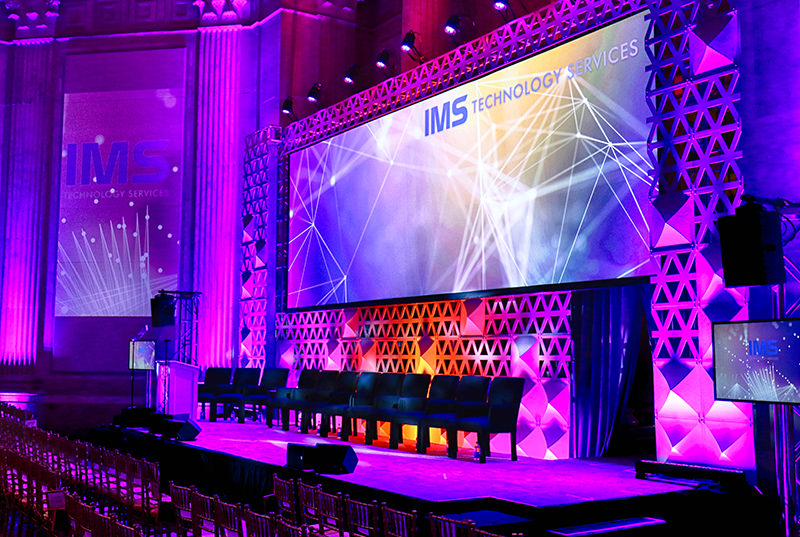The Future of Event Productions: Trends You Need to Know
Comprehending How Events Manufacturing Works: A Comprehensive Introduction of the Refine
The ins and outs of occasion manufacturing need a systematic strategy that incorporates numerous phases, each playing an essential duty in the total success of an occasion. Recognizing the subtleties of budgeting, source appropriation, and on-site management is crucial for any professional in this field.
First Preparation and Principle Advancement
Efficient preliminary planning and principle growth function as the structure for successful events manufacturing. This phase includes defining the event's objective, target market, and preferred outcomes. A clear vision is important; it overviews all succeeding decisions and helps align the group's efforts toward an usual objective.
During this stage, conceptualizing sessions can be vital. Engaging stakeholders, including customers, sponsors, and potential participants, promotes a collaborative setting that produces innovative concepts. In addition, thorough market study must be carried out to understand fads, preferences, and possible difficulties.
Once the idea is established, it is critical to produce a detailed occasion overview. This synopsis must consist of the event's motif, style, and vital activities. Developing a timeline is equally vital, as it helps to take care of deadlines and tasks properly.
Budgeting and Resource Appropriation
With a solid concept in place, attention should turn to budgeting and resource allotment, which are important elements in performing the event successfully. A well-defined budget serves as a roadmap, detailing all anticipated prices and readily available sources - Event Productions.
Source appropriation entails designating both economic and human sources to different tasks and components of the event. Prioritization is vital; crucial components need to get appropriate funding while less critical facets might need a more conservative strategy. Backup preparation is essential-- allocating a section of the budget plan for unexpected expenditures can reduce financial dangers.
Additionally, reliable communication amongst staff member relating to budget restraints promotes cooperation and innovation. This advertises the responsible usage of resources and motivates creative options to stay within budget plan. Ultimately, a calculated approach to budgeting and source allocation lays the foundation for an effective event, making it possible for coordinators to concentrate on delivering an unforgettable experience for attendees while preserving economic integrity.
Logistics and Sychronisation
Browsing the complexities of logistics and sychronisation is essential for the seamless implementation of any event. This stage entails meticulous planning and company to ensure that all elements function in consistency. Crucial element consist of place selection, transportation plans, and the organizing of numerous activities.
Efficient logistics starts with a thorough assessment of the location's abilities and constraints. This includes comprehending the format, accessibility points, and available resources. When the location is validated, transport logistics have to be developed, encompassing the movement of attendees, equipment, and materials. Collaborating these aspects needs partnership with vendors, vendors, and transport services to make sure timely shipments and pickups.
An additional crucial element is the advancement of a comprehensive timeline that outlines all logistical elements leading up to the occasion. This timeline offers as a roadmap, outlining essential milestones and target dates for jobs such as devices setup, providing solutions, and audiovisual setups. Regular interaction with all stakeholders is crucial to deal with any possible problems proactively.
Execution and On-Site Monitoring
Effective execution and on-site administration are crucial for changing meticulous plans right into reality during an occasion. Their ability to make real-time choices can significantly affect the occasion's success.
A well-defined routine is essential, working as a roadmap for all tasks. Occasion managers should make certain that setup happens promptly, adhering to timelines for sound checks, catering distributions, and visitor arrivals. Effective analytical abilities are additionally vital; unforeseen difficulties can emerge, requiring quick thinking and versatility to preserve the occasion's circulation.
This degree of interaction not only enhances the total experience yet additionally shows the professionalism and trust of the event team. Inevitably, effective execution and on-site management joint on thorough preparation, efficient communication, and a commitment to providing a remarkable occasion for all included.

Post-Event Analysis and Comments
The conclusion of any event lies not just in its implementation but likewise in the detailed assessment that complies with. Post-event analysis is important for figuring out the total success of the event and identifying areas for enhancement. This procedure generally includes event responses from numerous stakeholders, consisting of attendees, vendors, and group participants, to obtain a comprehensive perspective on their experiences.
To structure the assessment, event organizers commonly make use of meetings and studies, concentrating on crucial efficiency indications such as participant satisfaction, logistical efficiency, and budget adherence. Analyzing this data allows planners to assess whether the event met its goals and to comprehend the staminas and weaknesses of the execution.
Furthermore, compiling a detailed report summing up the findings is important for future referral. This documents not just functions as a useful resource for planning succeeding occasions investigate this site however also fosters a society of constant improvement within the company. By methodically attending to feedback and implementing adjustments, occasion experts can boost their approaches, eventually resulting in even more impactful and successful occasions. In final thought, post-event assessment is an essential action in the event manufacturing process that ensures recurring growth and quality in future ventures.
Final Thought

The ins and outs of event production need a systematic approach that integrates numerous stages, each playing a vital duty in the overall success of an event.With a strong principle in place, interest needs to transform to budgeting and resource allotment, which are crucial parts in executing the Homepage event effectively.Source appropriation involves designating both human and economic sources to various tasks and components of the event. Eventually, a image source calculated method to budgeting and resource allowance lays the foundation for an effective occasion, making it possible for organizers to focus on delivering a memorable experience for attendees while keeping monetary stability.
